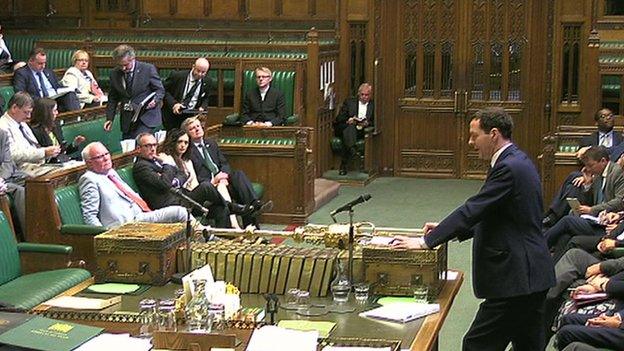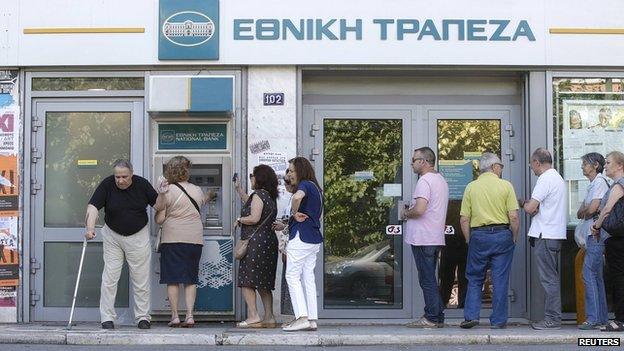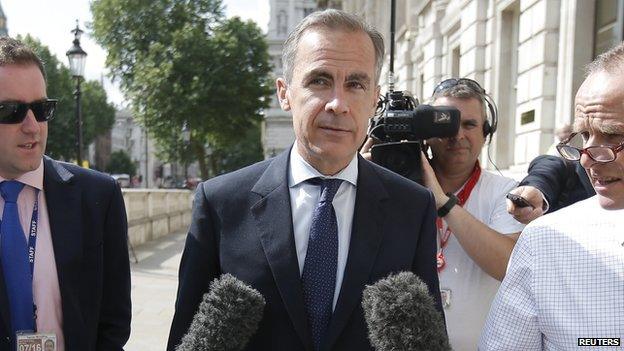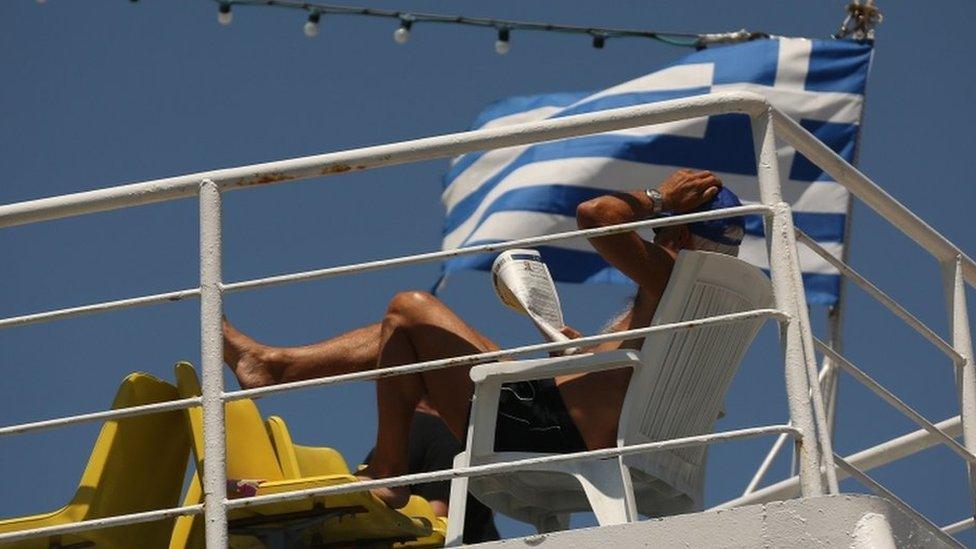Greek referendum: Osborne's pledge after No vote
- Published

The government will do "whatever is necessary" to protect the UK's economy against the fallout from Greece's bailout referendum, George Osborne has told MPs.
The chancellor also said more consular staff would be posted to Greek islands to help holidaymakers.
The Greek people rejected the latest proposed international bailout by 61.3% to 38.7%.
Earlier David Cameron chaired a meeting to assess the impact on the UK.
Bank of England governor Mark Carney and Mr Osborne were both at the Downing Street meeting.
In a Commons statement, Mr Osborne said the UK would respect the referendum outcome, and said the reaction from the financial markets had been "relatively contained".
Britons living in Greece would continue to receive UK pensions and were being advised how to switch to non-Greek bank accounts, he said.
And while staffing levels are being increased on some of the islands, he said it was "unrealistic" to expect this to happen everywhere.
He urged Britons travelling to Greece to make sure they had enough euros to cover every eventuality, to be careful of theft and to take any medical supplies they needed with them.

The UK government has warned Britons that banking services could be limited at short notice

Bank of England governor Mark Carney met ministers at Downing Street
"This is a critical moment in the economic crisis in Greece," Mr Osborne said.
"No-one should be under any illusions. The situation risks going from bad to worse. Britain will be affected the longer the Greek crisis lasts, and the worse it gets. There is no easy way out."
He urged Greece and its creditors to try to find a deal at the "eleventh hour".
Shadow chancellor Chris Leslie, for Labour, said the situation in Greece was "the most fundamental test the EU has faced for a generation".

Analysis
James Landale, deputy political editor
The economic risks to Britain of the Greek No vote are clear to see. But what of the political impact?
In the short term, the No vote will shape the context of this week's Budget. George Osborne will once again seize on the example of Greece to press home his argument for continued deficit reduction.
The chancellor will argue that it shows not only what happens to countries that do not get on top of their deficits, but also that greater fiscal restraint is needed to protect Britain against economic shocks such as the possibility of Greece exiting the eurozone.

European officials have warned the referendum outcome could see the country ejected from the eurozone.
Before the vote, Mr Cameron had predicted Greece would leave the euro if it voted "no" because it would be a "very significant default and a very significant problem".
Speaking after the meeting at Downing Street, the prime minister's spokeswoman said the question of whether Greece should leave the eurozone was "a matter for Greece and the eurozone".
She said a range of issues had been discussed, including the effects on holidaymakers and the consequences for the banking and financial sectors.
Work and Pensions Secretary Iain Duncan Smith and Europe Minister David Lidington also attended the contingency planning meeting.
The government has issued updated travel advice, external for British tourists, warning that cash withdrawals and credit card services could become limited at short notice.

Referendum analysis

- Published6 July 2015

- Published7 July 2015

- Published6 July 2015
- Published20 July 2015
